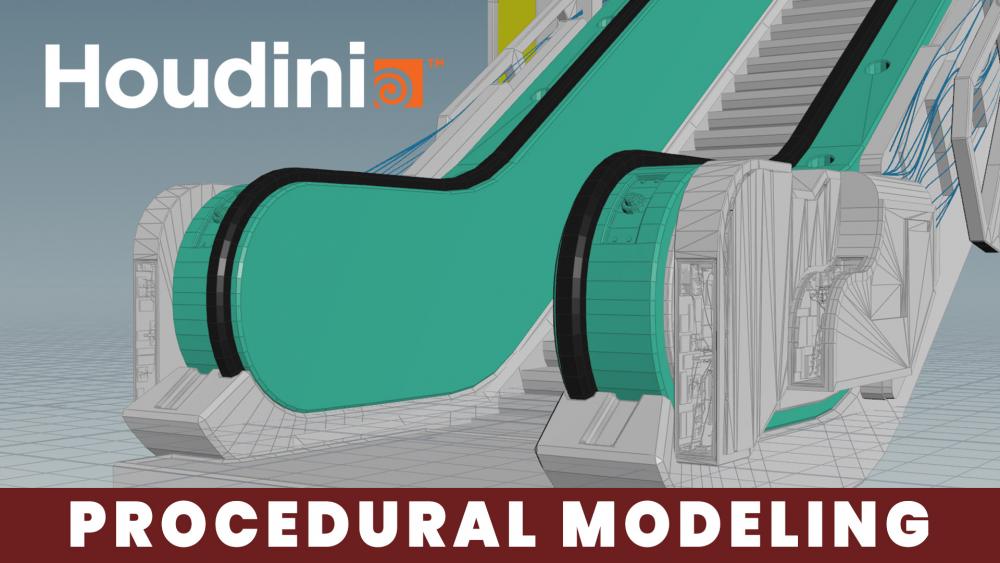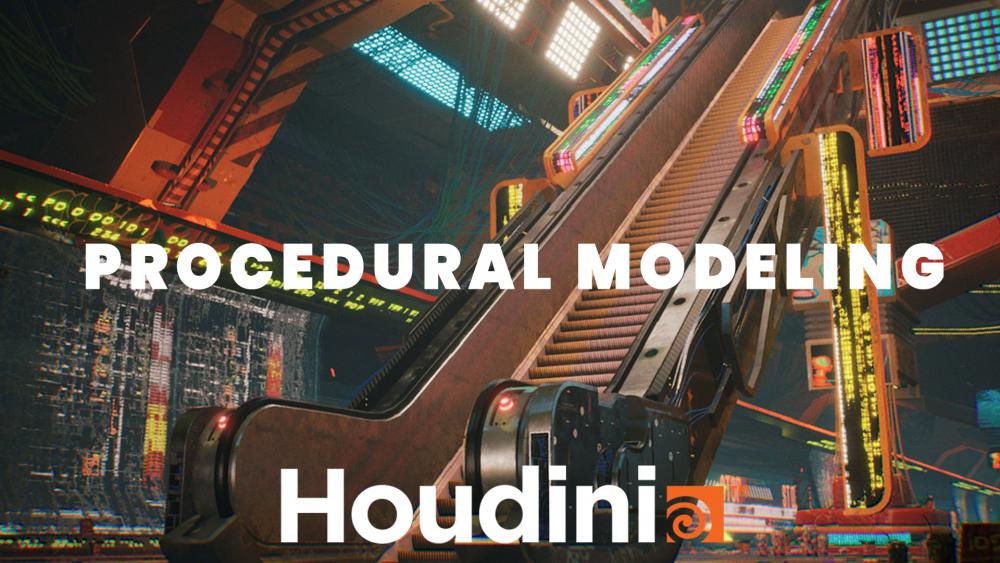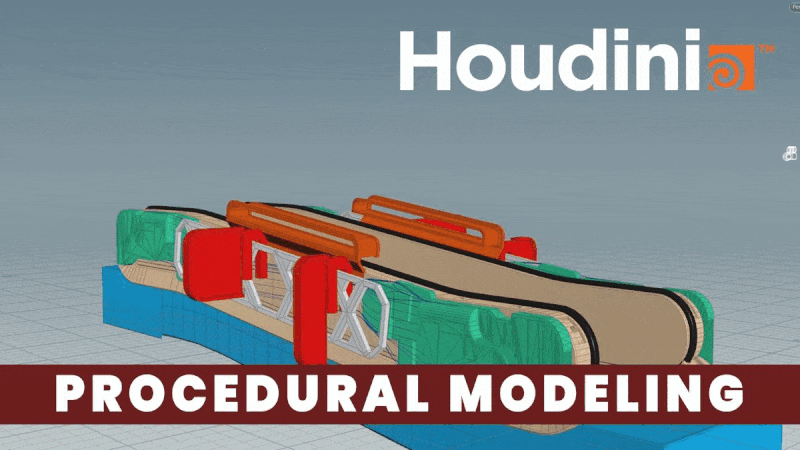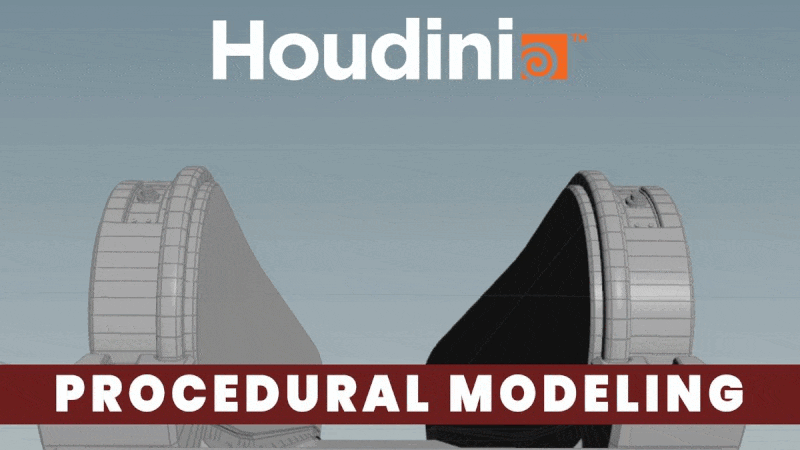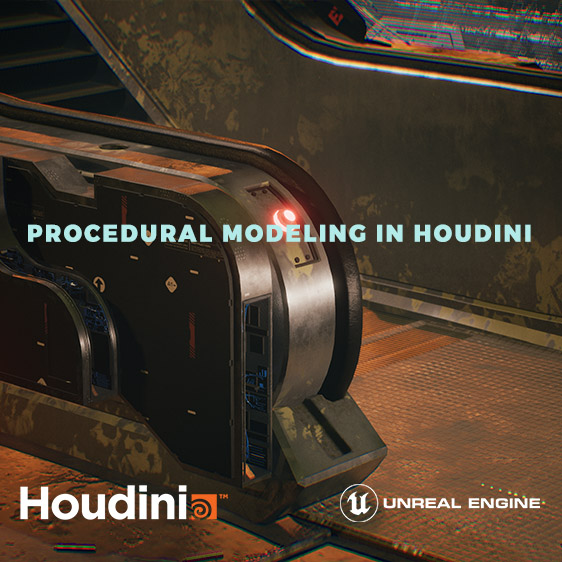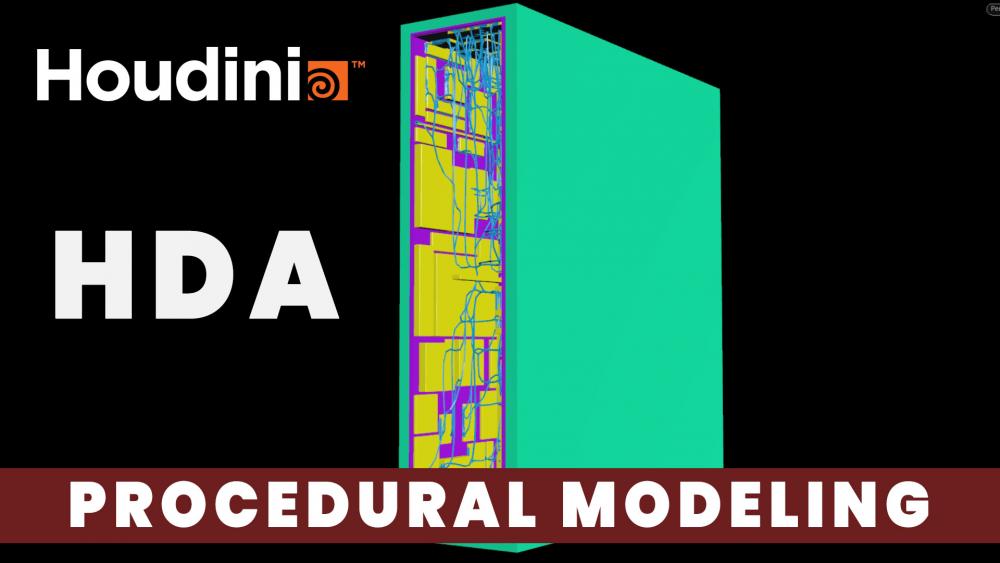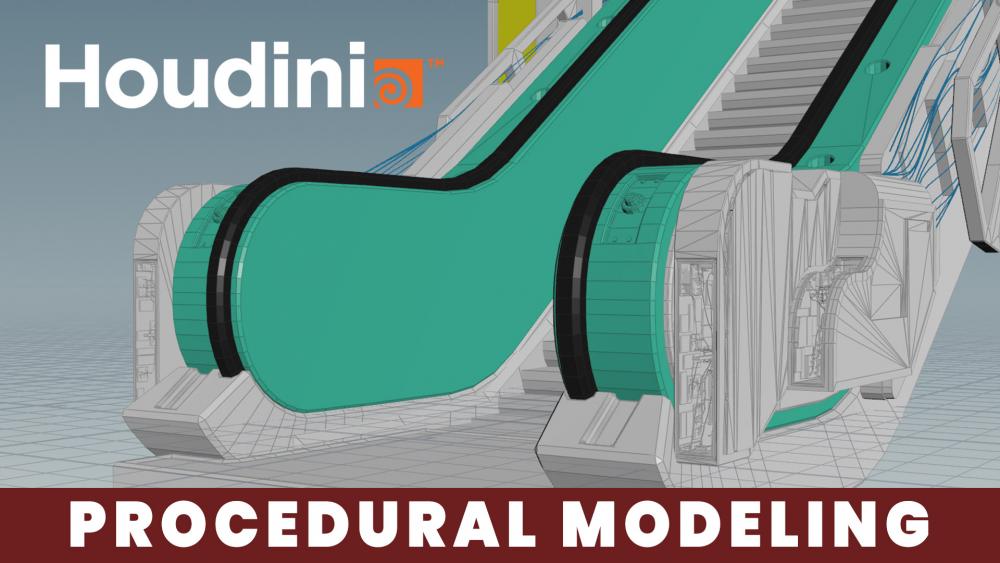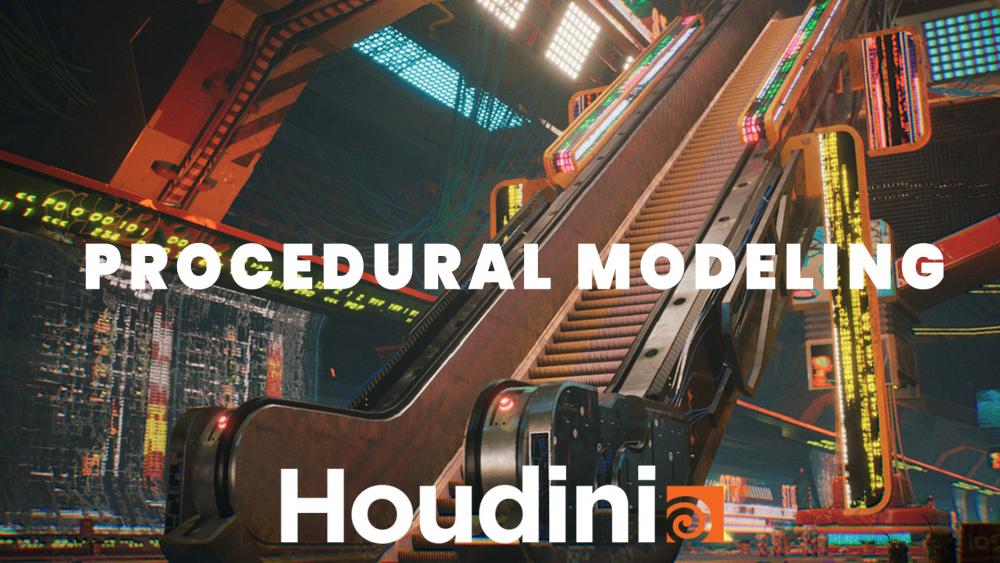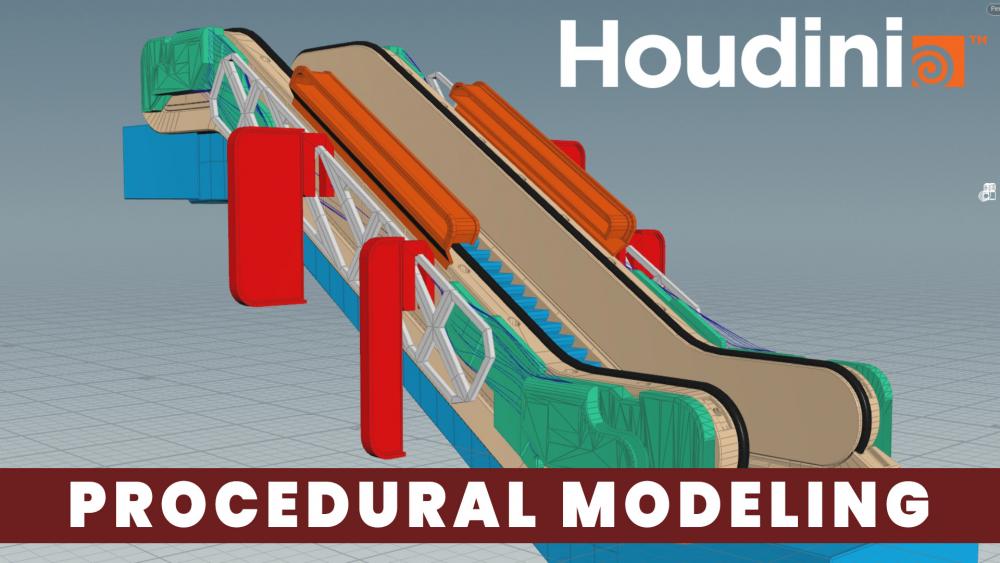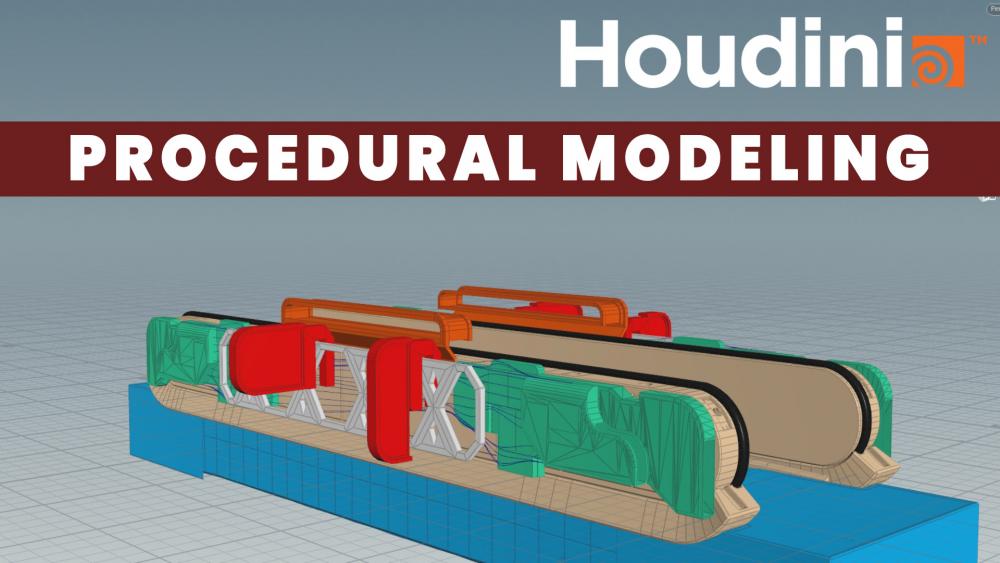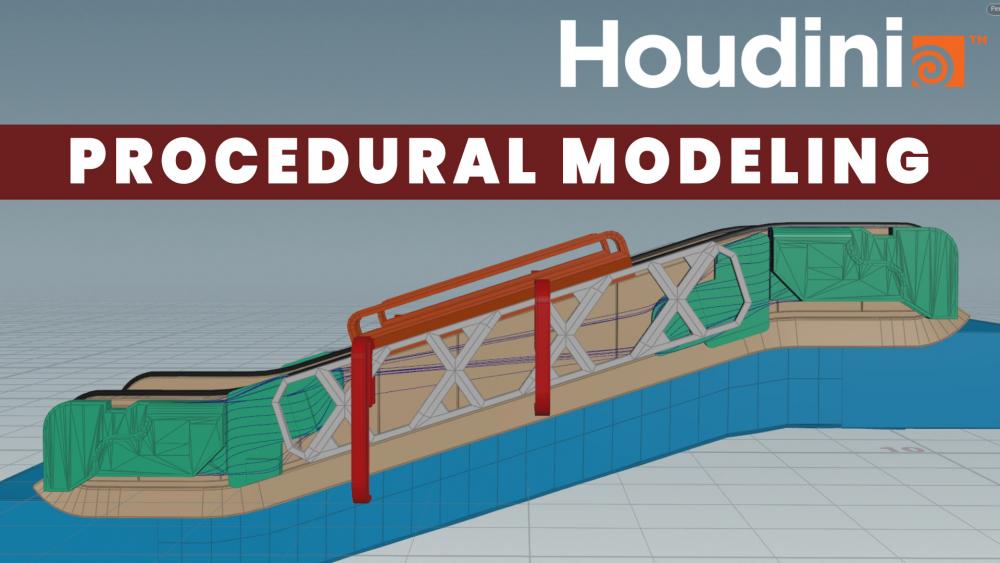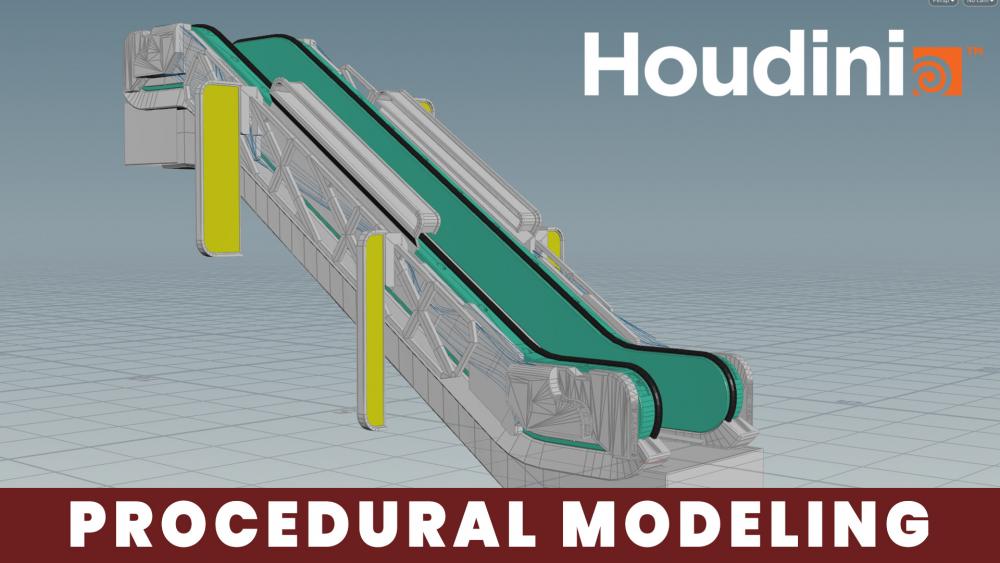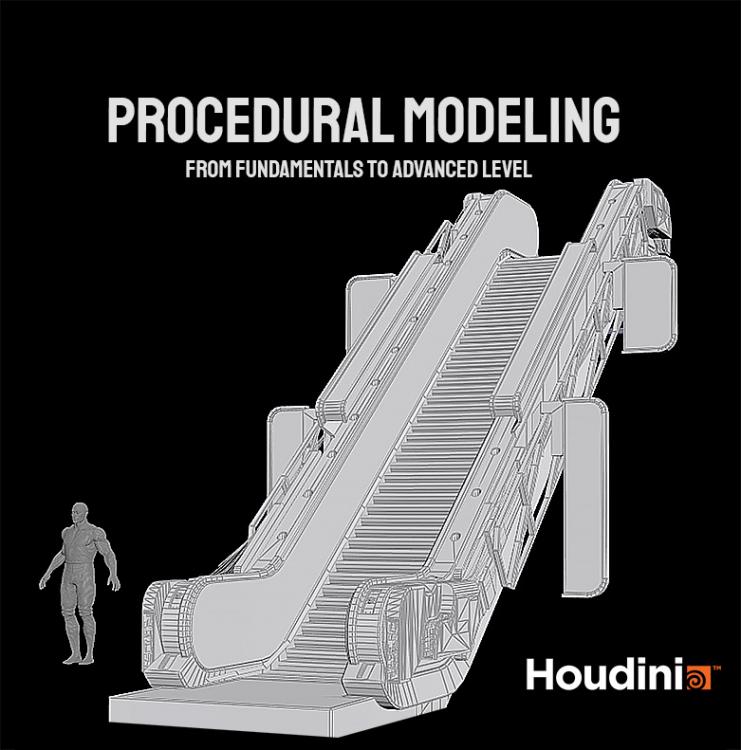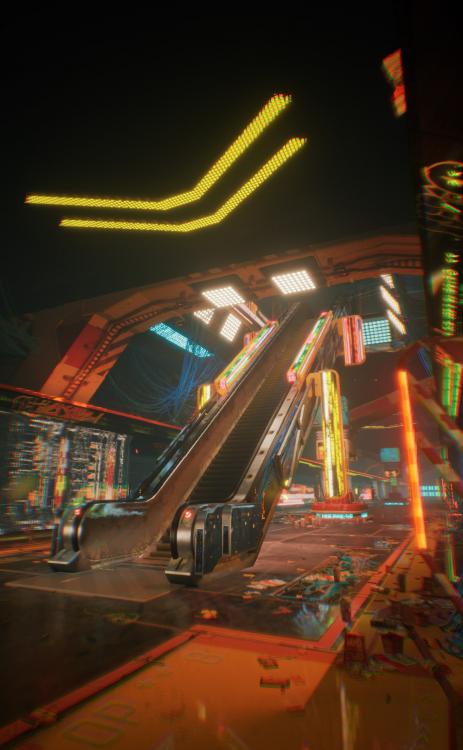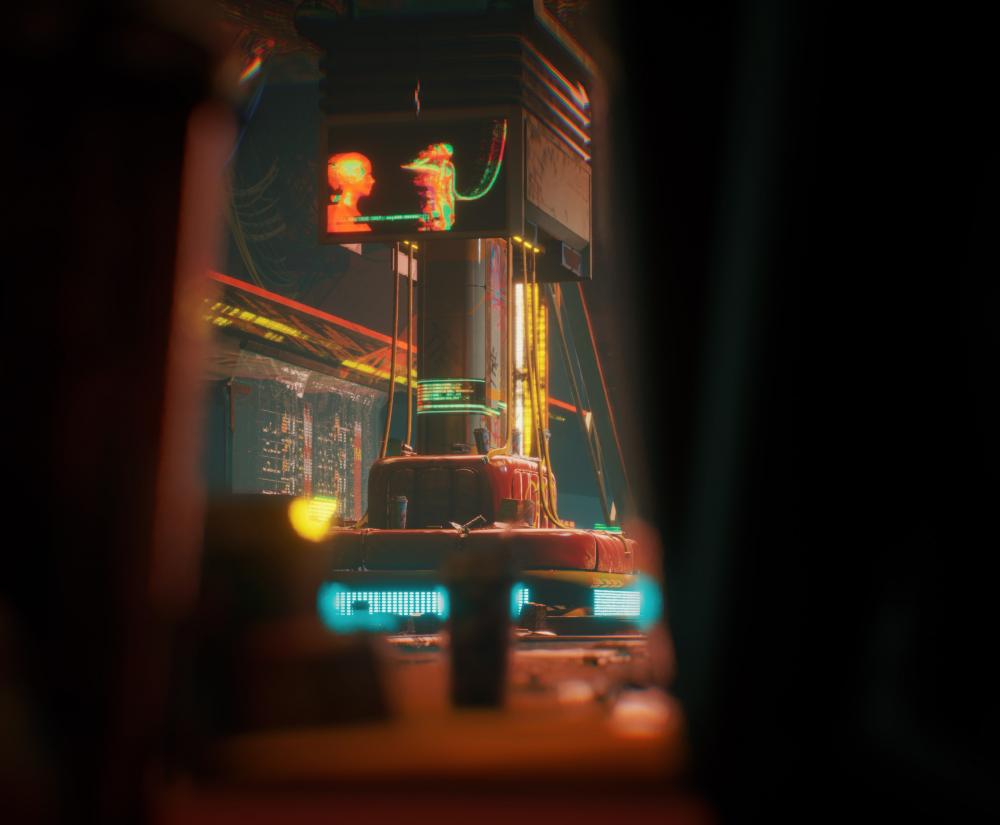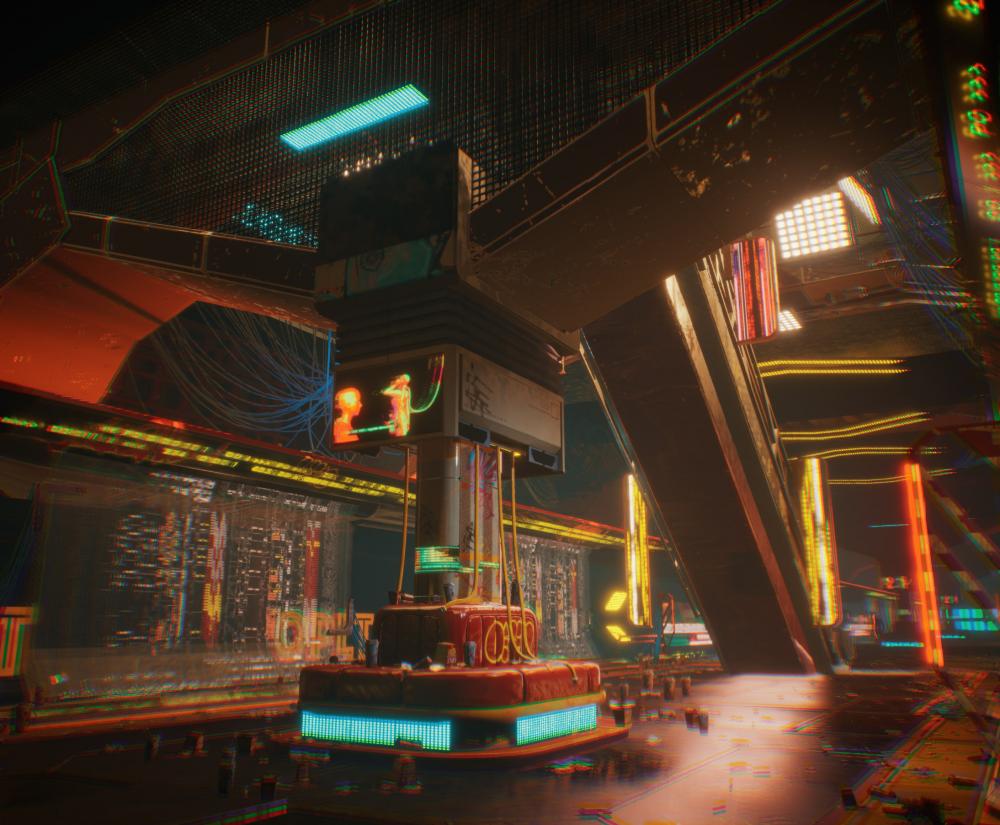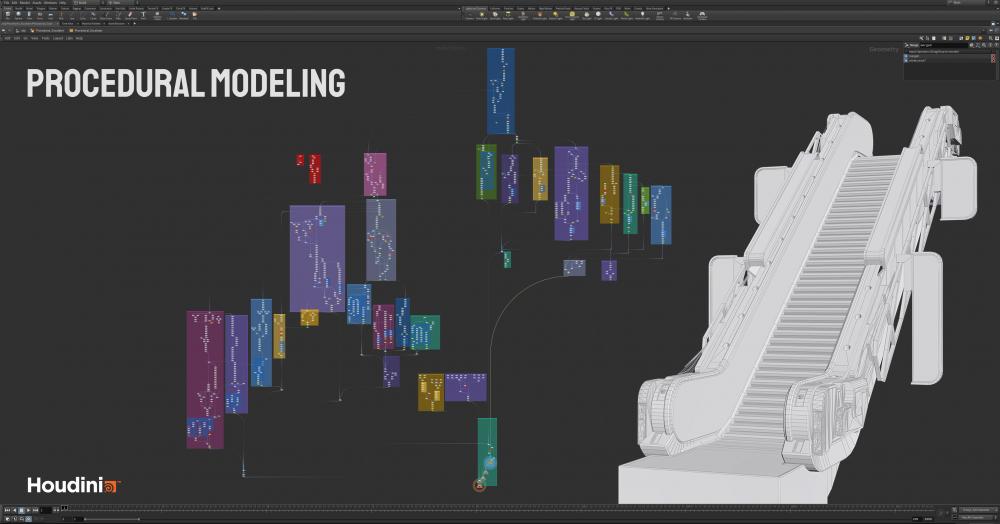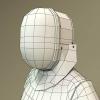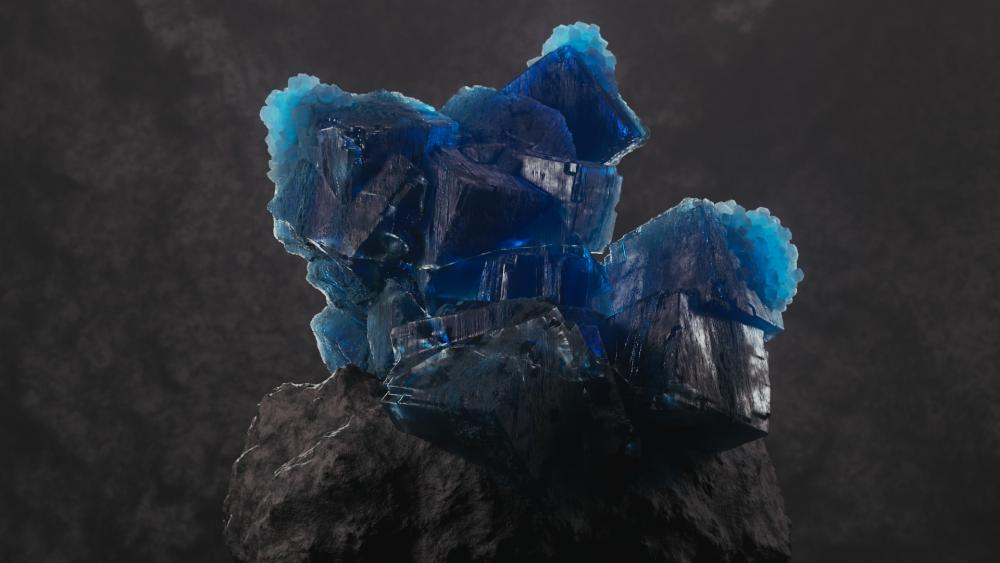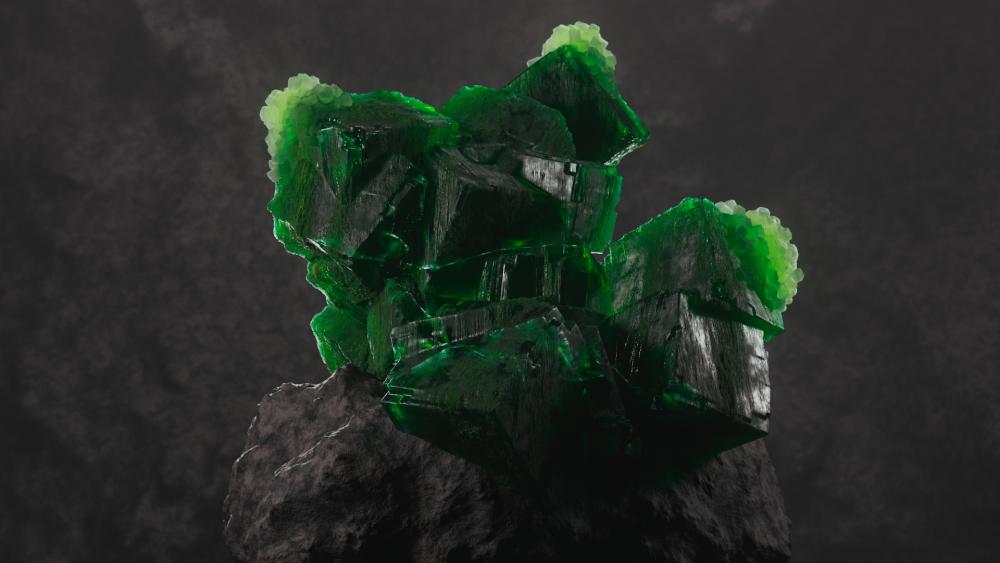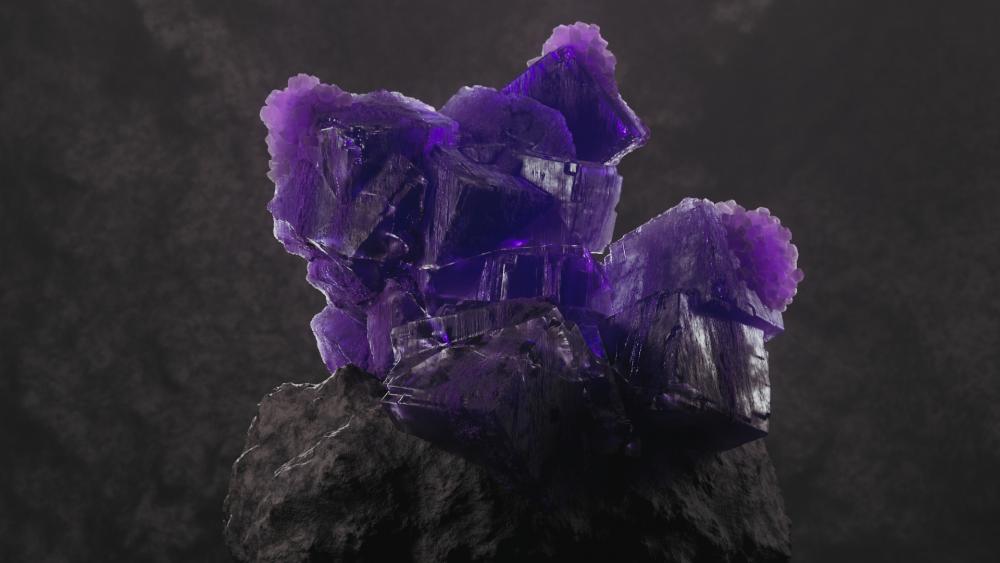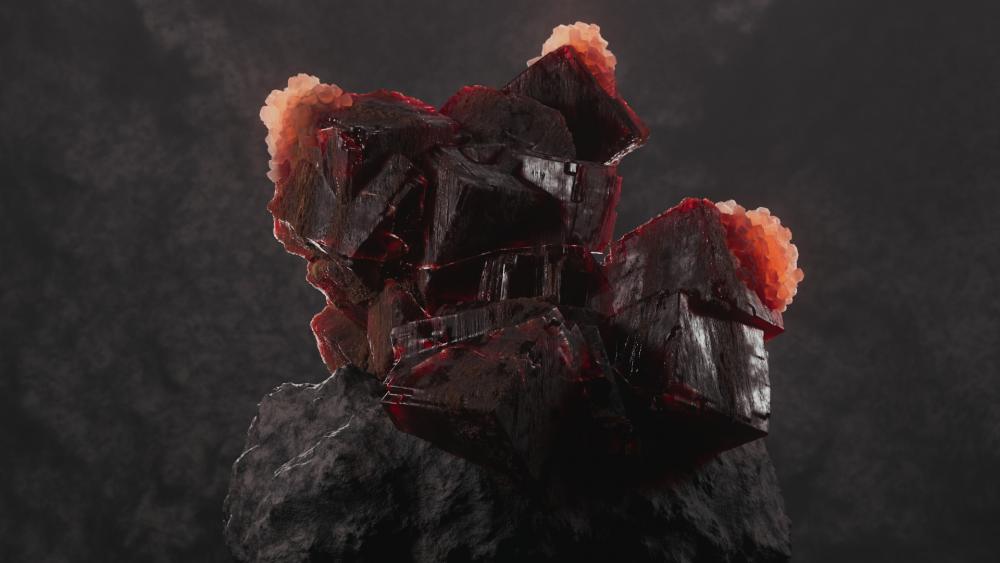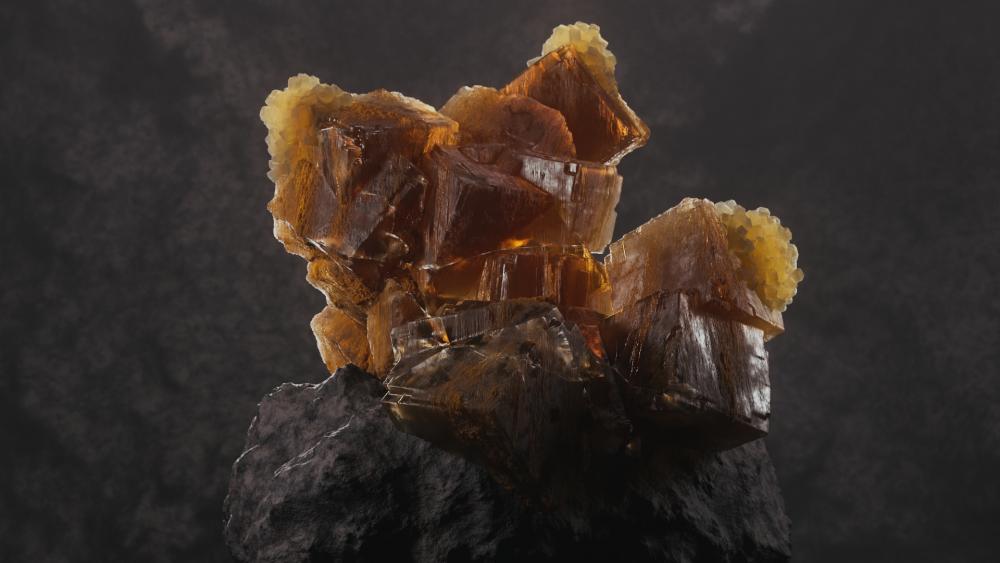Search the Community
Showing results for tags 'Tutorial'.
-
After more than 5 months of unimaginable amount of work, I am proud to release my first in-depth Houdini course on VEX More details in the video description and the website. Active Patreon members will receive additional discounts proportional to their lifetime support (25% of their lifetime support). Message me on Patreon for your discount coupon. Enjoy! 01 - Introduction [Point Clouds] 02 - Introduction [pcopen() vs pcfind() vs nearpoints()] 03 - Introduction 04 - Implementation 05 - pcfilter() Implementation for pcfind() 06 - pgfind() 07 - pcfind_radius() 08 - Excluding the Current Point & Ad-Hoc Groups 09 - Finding Min & Max Neighbour Points [Unique Pair Matching] 10 - Concept 11 - Implementation [Camera Based Occlusion with Variable Pscale] 12 - Concept 13 - Implementation [Uniform Point Distribution Over Polygonal Surfaces [Point Relaxation]] 14 - Concept 15 - Implementation 16 - Decoupling Operators [Convolution Kernels] 17 - Introduction 18 - Border Handling [Connectivity & k-Depth Point Neighbours Using Edges] 19 - Introduction 20 - Concept 21 - Implementation [Connectivity & k-Depth Point Neighbours Using Primitives] 22 - Concept 23 - Implementation [Extending k-Depth Point Neighbours Using Edges] 24 - Introduction 25 - Concept 26 - Implementation [Extending k-Depth Point Neighbours Using Primitives] 27 - Concept 28 - Implementation [smoothstep() [Cubic Hermite Interpolation]] 29 - Concept 30 - Implementation [Shaping Functions] 31 - Introduction 32 - Implementation 33 - Blurring Attributes [Sharpening Attributes Using Unsharp Mask] 34 - Concept 35 - Implementation [Generalizing the Kernel Code to Handle All Attribute Types] 36 - Concept 37 - Implementation [Attribute Gradient] 38 - Introduction 39 - Concept 40 - Implementation [Gradient Ascent & Descent] 41 - Planar Geometry - Introduction 42 - Planar Geometry - Concept 43 - Planar Geometry - Implementation 44 - 3D Geometry [Contour Lines] 45 - Introduction 46 - Concept 47 - Implementation 48 - Heightfields [Geometric Advection - Orthogonalization & Flowlines] 49 - Introduction 50 - Concept 51 - Implementation [Clustering & Quadtrees] 52 - Concept 53 - Implementation [Adaptive Subdivision] 54 - Introduction 55 - Implementation 56 - Hashing [Adaptive Subdivision] 57 - Improving OpenSubdiv Catmull-Clark Subdivision Surfaces Algorithm 58 - Half-Edges [Adaptive Subdivision] [Aggressive Performance Optimizations] 59 - Eliminating Groups 60 - Custom Fusing In VEX 61 - Recreating Proximity Structures In VEX 62 - Get Unshared Edges In VEX 63 - Final Optimizations [Limit Surface Sampling] 64 - Introduction 65 - OpenSubdiv Patches 66 - Moving Points to the Subdivision Limit Surface 67 - Scattering Points on the Subdivision Limit Surface 68 - Generating a Point Cloud on the Subdivision Limit Surface 69 - Pre-Generating a Point Cloud on the Subdivision Limit Surface 70 - Creating Isolines on the Subdivision Limit Surface [Adaptive Subdivision] 71 - Computing Surface Normals from the Subdivision Limit Surface [Custom Subdivision Surfaces] [Splitting Edges [Edge Divide]] 72 - Concept 73 - Converting Edges to Primitives 74 - Creating New Edge Points [Rebuilding Polygons] 75 - Concept 76 - Implementation 77 - Preserving & Interpolating Attributes 78 - Multithreading by Connectivity 79 - C++ vs VEX 80 - Preserving Groups 81 - Final Optimizations [Implementing Bilinear Subdivision] 82 - Introduction 83 - Concept 84 - Modeling Test Geometry 85 - Starting from Edge Divide 86 - Creating New Face Points 87 - Creating New Edge Points [Creating New Closed Polygons] 88 - Concept 89 - Implementation [Creating New Open Polygons] 90 - Concept 91 - Implementation 92 - Preserving Primitive Groups & Interpolating Primitive Attributes [Preserving Vertex Groups & Interpolating Vertex Attributes for Closed Polygons] 93 - Concept 94 - Implementation 95 - Preserving Vertex Groups & Interpolating Vertex Attributes for Open Polygons 96 - Implementing Iterations 97 - Preserving Literal Groups 98 - Creating Neighbour Primitives 99 - Final Changes 100 - Testing On Complex Geometry [Implementing Catmull-Clark Subdivision] 101 - Introduction [Closed Surfaces] 102 - Rules [Gathering Edge & Face Points] 103 - Concept 104 - Implementation [Computing Weights for New Edge Points] 105 - Concept 106 - Implementation [Computing Weights for Original Points] 107 - Concept 108 - Implementation [Attribute Interpolation] 109 - Concept 110 - Implementation [Boundary Interpolation Rules for New Edge Points] 111 - Concept 112 - Implementation [Boundary Interpolation Rules for Original Points] 113 - Concept 114 - Implementation 115 - Open Surfaces - Handling Corner Points 116 - Handling Non-Manifold Topology [Open Polygons] [Computing Weights for Original Points] 117 - Reverse Engineering OpenSubdiv 118 - Implementation [Computing Weights for New Edge Points] 119 - Reverse Engineering OpenSubdiv 120 - Implementation 121 - Handling Open Polygonal Curves [Handling Mixed Topology] 122 - Full Geometry 123 - Sub-Geometry 124 - Testing On Complex Geometry [Performance] 125 - Profiling [Grouping Boundary Edges from Primitive Group] 126 - Concept 127 - Implementation 128 - VEX vs C++ [Caustics] 129 - Introduction 130 - Sea Caustics 131 - Pool Caustics [Enhancing Gradient Ascent, Descent & Contour Lines] 132 - Introduction 133 - Implementation 134 - Tracing Both Directions [Updating Distances Properly] 135 - Concept 136 - Implementation 137 - Looping Streamlines Problem 138 - Adding Trace Parameter [Evenly Spaced Gradient Ascent, Descent & Contour Lines] 139 - Introduction 140 - White Paper 141 - Concept 142 - Constructing the For Loop Network 143 - Improving Seed Points Selection for Tighter Packing 144 - Implementing Separation [Enforcing Separation Using Self Proximity] 145 - Concept 146 - Implementation 147 - Optimization 148 - Final Tweak 149 - Applying to 3D Geometry [Custom Subdivision Surfaces] [Extreme Performance Optimizations] 150 - Introduction 151 - Establishing Baseline for Performance 152 - Updating Attribute Interpolate Nodes 153 - Interpolation vs Copying 154 - Optimizing Input Group 155 - Caching Geometry Data 156 - pointedge vs pointhedge 157 - Getting Primitives from Half Edges 158 - Eliminating Edge Groups 159 - Parallelizing Geometry Creation for New Primitives [Unrolling Loops] 160 - Parallelizing Geometry Creation for New Edge Primitives [Unrolling Loops] 161 - Finalizing the Network 162 - Performance Profiling the Latest Version 163 - Conclusion
- 54 replies
-
- 15
-

-

-
New USD/LOPs tutorial for anyone interested in asset authoring and composition arcs. Basically an in-depth explanation of what the component builder nodes do under the hood with some tips and tricks sprinkled in.
-
80% OFF Houdini & UE5 -Easter Bundle- Once these 7 are gone, this deal vanishes— Hey there, This is NOT your average sale. I’ve unleashed an EASTER BUNDLE of 7 groundbreaking Houdini & UE5 tutorials at a jaw‑dropping 80% OFF—but there are only 7 bundles at $138 (was $769), and they’re disappearing right now. Countdown to zero: Bundles available: 7 Price: $138 (reg. $769) Deadline: When the 7 bundles sell out, whichever comes first. GRAB YOUR 80% OFF EASTER BUNDLE NOW » Artstation: https://www.artstation.com/a/46882789 Gumroad: https://rart.gumroad.com/l/houdinibundle Make your move. To your next triumph, Radu P.S. This isn’t hype—it’s scarcity. Only 7 bundles, only until they’re gone. Claim yours before someone else does!
-
Currently facing issues with file attachement //////////////////////////// OpenUSD Guide for (Student) Games //////////////////////////// Hello everyone! For the several weeks I have been looking into implementing OpenUSD into the pipeline of student games. The information that is currently available is more technical than practical or software-specific, instead of guiding you how to set up a pipeline. To fix this problem, I decided to write my own high-level guide for those who will follow in my footsteps, whether it be student like myself or individuals who have taken an interest in OpenUSD and its capabilities! I will leave out the in-depth research, as most of the information can be found on OpenUSD.org. Disclaimer: I will restrict this guide to Maya and Unreal. Houdini and Blender's approaches to the pipeline will be shortly discussed. This guide is also currently aimed at environment art, due to a lack of availability of other disciplines at the time of writing. //////////////////////////// Before we start, here is a quick introduction on the author of this post. My name is Sikandar Maksoedan, 20, I'm a 3rd year student at Breda University of Applied Sciences specializing in Tech art. I am currently looking for an internship starting September 2025. I am currently working on broadening my skillset in terms of Shaders, VFX and Pipeline optimization. I got interested in USD after my teacher Zoran Arizanovic mentioned the possibilities of the file format during a lecture some time ago, but only really picked it up after looking for a way to transfer a unreal scene to a different DCC while retaining all the data. //////////////////////////// Contents 1. What is OpenUSD (& Why should you care)? 2. How does USD function for Artists? 3. Introduction to Pipeline 4. Practical showcase of Pipeline 5. Closing statements //////////////////////////// 1. What is OpenUSD (& Why should you care)? USD, Universal Scene Description, is a file format that allows for the transfer of entire 3D scenes. This includes data from Geometry to Materials, from Lighting to Cameras, and more within this single file format. It shouldn't be grouped together with OBJ and FBX, it is closer to .MA and .Blend files. USD as a single file can be read in almost any major DCC with most of its features intact. USD allows the referencing of different USD files, allowing multiple people to collaborate on a single project at once. By layering USD files in sublayers, you are able to have your team work in tandem. Your level designer could be moving around props using a proxy mesh while your Prop artist is still modelling. The difference between using USD and a normal approach in team settings would be the latency. By updating a single USD file, all layers referencing this file will adjust their proxy on a quick refresh. Then, why should you as a (Tech) Artist care about USD? The advantages for both teamwork as personal work that USD provides are too big to be ignored. USD is like the PDF of games, a universal format that we won't be able to live without in due time. The scale of these advantages is big enough to have game studios such as Remedy Entertainment switching over already. Within the next few years, USD will be slowly adopted within the games industry. This means being able to work with it will be a skill required, especially for students. For all the advantages of USD, I will redirect you to the OpenUSD website: https://openusd.org/release/intro.html //////////////////////////// 2. How does USD function for Artists? USD for Artist should be kept as simple as possible. As stated before, this article isn't aimed at explaining all the technical details. USD can be used in 3 major ways for Artists 1. As a Container for single assets 2. As a Sublayer for a collection of Containers 3. As a Shot containing a collection of Sublayers Not all 3 have to be used to succesfully implement USD into your pipeline, but having all 3 gives you the most advantages. Lets go over usage 1, as a Container for assets. USD stores data in containers called 'Prims'. These Prims can have Parent-Child relationships with other Prims. Prims can contain Property, which can be divided into Attributes and Relationships Attributes consist of data such as the Vertex coordinates to form a mesh Relationships point to other data, such as which Material needs to be used In the proposed pipeline, you would create your Assets and store them in individual USD files. These USD files would be referenced in this Prim. Now onto usage 2, Sublayers Prims can be stored in Layers. Layers are akin to the scene hierarchy you would have in most DCC. Layers is where the Scene building happens. You can instance a Prim. This instancing references the USD file using it's local path, allowing us to change the Prim itself while keeping the reference. I have chosen to name the layers 'Sublayer', as you can have layers consisting of layers. This would allow you to have seperate layers for seperate parts of a level, each part consisting of more layers. That allows you to disable and enable parts of a level with ease, while also allowing you to for example work on the lighting or set-dressing of the entire level at once. You could also have Sublayers containing the Blockout of a level and work on a reference of that in your own DCC, lowering the latency between departments. Each Layer will be stored as a individual USD file containing reference paths to the lower levels. Usage 3 is last, The Final layer containing information of all the Sublayers is called a shot. Shots are the file you can use to preview all Sublayers and Prims at once and would contain the entire level. With this covered, we can go over to the actual pipeline setup that I propose //////////////////////////// 3. Introduction to Pipeline The USD pipeline that I have tested out for Games is fairly simple. But first, we need to discuss the role that USD plays in the pipeline. USD is practically an asset library in the way we will use it. We are creating assets that will be referenced by other people in their scene. The difference here is that we have automatic references to these assets, and once they are updated all scenes containing the file will also automatically update. Another advantage of the USD pipeline that we can open the files in any DCC to adjust it, whether it be a full scene or a single assets We have 3 hierarchies of files, the Shot, Sublayer and Container. Container will almost always be an Asset, so I will use these terms interchangeably. See Image 1 Containers will be the hierarchy where you will save your work to most of the time. These files are what in a normal pipeline your FBX files would be, as these files contain singular assets. Every asset gets an individual USD file so beware of naming schemes and folder hierarchies! If you want to work on a single USD file, you can. For texturing this can be nice. Most of the time however, you would want to work in a Sublayer. Sublayers will be the hierarchy which you will open most of the time. The layers are what in a normal pipeline a folder would be, whether in Maya or Unreal. Sublayers have the widest usecases. They can be used to store your own work like a .MA file, or as a part of a scene. Ideally you would have a Sublayer replace your .MA file, and use a separate sublayer to build part of your scene. Having multiple sublayers allows you to work on the same scene with other artists, since they are all individual parts of the same Shot Multiple Sublayers can reference the same Containers, and multiple Shots can reference the same Sublayers. Shots will be total sum of Sublayers and Containers. This is the file that will be loaded into your Game Engine. This file only needs to be accessed when adding or removing Sublayers. Proper naming schemes is key when using USD files, as there is little distinction to be made between the 3 types when they are on your disk. naming them with a prefix such as Co_, La_, Sh_ will already bring you a long way. I personally order the files like the following example: ------------------------------- -Level_01 --Shot_Level_01.USD ---Sublayer_Setdressing_01.USD ---Sublayer_Lighting_01.USD ---Sublayer_Buildings_01.USD ---Sublayer_BuildingBlockout_01.USD ---Sublayer_BuildingBlockout_02.USD -Assets --UserScenes ---Sublayer_UserScene_02.USD ---Sublayer_UserScene_02.USD --BuildingKit ---Asset_SM_ModularWall_01.USD ---Asset_SM_ModularWall_02.USD --Foliage ---Asset_SM_Tree_01.USD ---Asset_SM_Bush_01.USD ------------------------------- As you can see, We have seperate folders for our Assets and for the levels For a better overview different assets have been seperated based on types Users have their own scenes that reference specific assets So to quickly sum up what we have gone over up until now: You model assets and save them in Container-level USD files You assemble parts of the scene and save them in Sublayer-level USD files You combine all parts of the scene and save them in the Shot-level USD files Below you can see a more expansive overview of my USD pipeline. See Image 2 As you can see, we divide it up in Shots, Layers and Assets as mentioned above. We model and texture in the Asset stage, we can texture and assemble our scene in the Layers stage, and we can combine our Layers in the Shot stage. We Import the Shot stage into Unreal, but Unreal can both read and write to the USD files to edit the data. I have added OpenUSD viewer to the pipeline as I often use it to verify that my USD changes have actually saved. It also makes it easier to preview individual files and check if they are correct. With this info, we can go on to the practical pipeline example //////////////////////////// 4. Practical showcase of Pipeline The first step in the practical pipeline would be the setup of your Main USD file, the Shot, and its first few Sublayers. In Maya, enable the USD plugin to get started. By using the USD layer editor, we can create several layers and save these. They will each save as a separate USD file. See Step 1 You can easily add Geometry to a layer, but this causes it become a single mesh. See Step 2 A better approach that works for larger setups is using references to other USD files that contain the desired assets, whether it be boxes or horses. See Step 3 We are now saving the horses to a separate layer, allowing us to completely remove the boxes from our sight just like you would in the outliner. As you can see, the material setup and positions get correctly imported into Ue5 when using the Ue5 USD plugin. See Step 4 Changing the position of meshes in Unreal and saving will update the USD file, and refreshing in Maya showcases these changes. See Step 5 Changing your material setup in Maya changes the MaterialX parameters, thus changing it in Ue5 by extension. See Step 6 And that concludes the short practical demonstration. Once I get my hands on some more time and more assets to create a proper demonstration, I will update this guide. This concludes the basic pipeline, I will list some extra resources at the end of this topic. This is just a basic demonstration of the basic concepts, on how we can use different USD files as an assetkit to build larger scenes. Now some highlights as to why we are not using Blender. Blender lacks the simple UI that Maya has where you can easily create USD layers, Blender can still be used in the USD pipeline for individual asset creation, while the assembling currently has to be done in Maya, Houdini or Unreal I have left Houdini out of this pipeline on purpose as Maya is the most user-friendly, and thus easier to use in a student-game pipeline. Houdini also has plenty of documentation online on how their USD workflow and has plenty of support for the features in Solaris. You can check out Project Greylight for a practical example, which you can find on the SideFX website that will be listed below. I personally use Houdini as my main DCC, so I will update this guide later with a proper Houdini pipeline setup. //////////////////////////// 5. Closing statements Well, that marks the end of my short introduction to USD for student games. I have purposefulyl left out Variants and Classes, just to make the key pipeline of USD easier to understand. USD is slowly creeping into the head of students at my school, but sadly none seem too eager to try it out in actual production. With USD finally making it's way into the games industry, we students should be the first to jump on the OpenUSD train and learn how it works before entering the Games industry. I doubt this guide will get much attention on the forum itself, but for future students it would be nice to have some form of starting point. Currently I'm looking for industry people that have used USD daily and can help me improve the pipeline a bit more, and for Internships where I could possibly improve my understanding of Pipeline integrations. I am also looking into replacing GLTF in a custom engine pipeline with USD, giving not so tech savvy artists a chance to help out in these projects by using their preferred DCC. Thank you to anyone who read this through to the end, If you have any feedback to improve my pipeline or see any mistakes then please reach out!
- 1 reply
-
- pipeline
- student project
-
(and 5 more)
Tagged with:
-
JUST A FEW HOURS LEFT! Houdini Tutorials 80% OFF ! Houdini Tutorials on Sale: 1. Procedural Modeling [Escalator] https://rart.gumroad.com/l/ProceduralModeling/BF80off Was $95 - Now $19! 2. Megastructure Generator [Procedural Modeling] https://rart.gumroad.com/l/MegastructureGenerator/BF80off Was $89 - Now $17.80! 3. Procedural Bush Plant in Unreal Engine 5 https://rart.gumroad.com/l/dCEnaM/BF80off Was $65 - Now $13! 4. Procedural Japanese Castle in Unreal Engine 5 https://rart.gumroad.com/l/ProceduralCastle/BF80off Was $95 - Now $19! 5. Procedural Level Design in UE5 https://rart.gumroad.com/l/LVLDesign1/BF80off Was $170 - Now $34!
-
Hey everyone! I'm excited to share that I'm starting a brand-new YouTube channel focused on teaching VFX and Houdini. This channel will be packed with tutorials, project breakdowns, and behind-the-scenes insights to help you learn and grow your skills in visual effects and Houdini. To kick things off, I'll be starting with a special playlist on creating a *Procedural Bridge Asset* in Houdini, from the basics all the way to a fully functional, customizable tool. If you're passionate about VFX or looking to dive into Houdini, please subscribe, share, and help spread the word. Your support will mean so much and help this channel start strong. Let’s create and learn together Thank you, and see you on the channel! CPFX Here is the link to the free HDA: https://cosmicpalettefx.gumroad.com/l/BasicBridgeAsset
-
Hello all, Im attempting to follow this old tutorial for a growth solver in VEX : https://www.creativebloq.com/how-to/grow-plants-in-houdini Im stuck on blending the direction between the steps in the For Loop, to stop the crazy jumps between steps. I also have an issue of the Ivy getting stuck under the object (I guess because the wander variable isnt strong enough for it to find a way out). Ive linked my hip file bellow, anyone have an idea what could be done next to get this working better? Here is where im currently at: Heres my current hip file: IvyGenerator_tool_forOD.hip Creating a solver like this is my overall goal eventually: Thanks!
-
- growth effect
- growth algorithms
-
(and 3 more)
Tagged with:
-
Hi there, Just a quick post to promote my new tutorial for cmivfx. It shows how to create a 3D spiral galaxy from scratch. The images used to promote the video are the actual images made from the tutorial. It covers creating a vortex star simulation in POPS, DOPS smoke simulation for the gas, and a SOPS system for the background star field. I go through material creation, rendering, and compositing. I also provide a finished hip file that has all the networks in it. I should note that this is more of a creative approach, rather than a scientific approach, so if you are looking for something like an n-body approach, you won't find that here. I hope people find this tutorial easy to understand, well thought out, and presented clearly. I believe CMIVFX is offering a discount code at the moment, so if you are looking to purchase it, now would be a good time.
-
New Houdini Tutorial Alert! I'm excited to announce my latest Houdini tutorial: Building Generator from Image | Houdini Beginner Tutorial! Watch it on my Youtube channel: https://youtu.be/CsFIbPUrK-U?si=b9Tbzqvn2-Fcwagh Happy modeling,
-
Hi guys I started creating a series of brief tutorials covering specific tips and tricks for using Houdini features. So these tutorials are not meant to provide comprehensive explanations of the topics. Please subscribe to my YouTube channel for more. Houdini Tutorial: Attribute Paint re-cache method feature:
-
Hello, everyone! I'm very excited to share my Procedural Lake Houses tutorial series, where I show how to generate the houses all the way from base silhouette to final shading. Example of the Generated Content: Link to cmiVFX page: https://cmivfx.com/products/494-procedural-lake-house-building-creation-in-houdini-volume-1 Thank you for watching and have a good day!
- 46 replies
-
- 7
-

-
- procedural modeling
- mantra
-
(and 4 more)
Tagged with:
-
Hi, 80% Off to ALL Houdini Tutorials. Discount code: FLASH80 Houdini Tutorial Megastructure Generator [ Procedural Modeling ] Download: https://gumroad.com/l/MegastructureGenerator Regular price - $89 Price with discount - $18 Houdini Tutorial Procedural Modeling [escalator] Download: https://gumroad.com/l/ProceduralModeling Regular price - $95 Price with discount - $19 Houdini Tutorial Procedural Bush Plant in Unreal Engine 5 Download: https://gumroad.com/l/dCEnaM Regular price - $65 Price with discount - $13 Houdini Tutorial Procedural Japanese Castle in Unreal Engine 5 Download: https://rart.gumroad.com/l/ProceduralCastle Regular price - $95 Price with discount - $19 Houdini Tutorial Procedural Level Design in Unreal Engine 5 Download: https://gumroad.com/l/LVLDesign1 Regular price - $170 Price with discount - $34
-
Download: Gumroad: https://gumroad.com/l/MegastructureGenerator Artstation: https://www.artstation.com/a/26887378 What you will learn: In this tutorial, you'll learn how to use Houdini's powerful procedural modeling tools to create a building generator that can generate a wide range of building designs with just a few clicks. Throughout the tutorial, you'll be guided step-by-step through the process of building your own custom building generator from scratch. You'll start by learning the basics of Houdini's procedural modeling workflow, including how to create and manipulate nodes, and how to use expressions, attributes, groups to create complex, parametric models. By the end of the tutorial, you'll have a fully functional building generator that can create a virtually limitless number of building designs with just a few clicks. Whether you're a seasoned Houdini user or just getting started with procedural modeling, this tutorial is the perfect way to take your skills to the next level and unlock the full power of Houdini's procedural modeling tools. What's Inside? 17 Video Chapters. 6 Hours of Lessons. Houdini 19.5 Project Files. HDA Megastructure Generator. Unreal Engine 5 Project Files. (3 different cities) Introduction: Chapter 1 - Basic Shape. Chapter 2 - Big Details. Chapter 3 - Ventilation. Chapter 4 - Medium_Details. Chapter 5 - Small_Details. Chapter 6 - Small_Details_2_Platform. Chapter 7 - Big_Antenna. Chapter 8 - Small_Antenna. Chapter 9 - Small_Antenna_2. Chapter 10 - Decorative_Panels. Chapter 11 - Cables. Chapter 12 - Creating_HDA. Chapter 13 - Creating UV. Chapter 14 - Materials. Chapter 15 - Automatic Search. Chapter 16- Add_Complexity_Levels. Chapter 17 - Export. Tools: Houdini 19.5 Unreal Engine 5 Download: Gumroad: https://gumroad.com/l/MegastructureGenerator Artstation: https://www.artstation.com/a/26887378 Download: Gumroad: https://gumroad.com/l/MegastructureGenerator Artstation: https://www.artstation.com/a/26887378
-
Procedural Modeling in Houdini In this tutorial you will learn the procedural modeling from fundamentals to advanced level. Video Presentation: What's Inside? 40 Video Chapters. 14 Hours of Lessons. Houdini 19 / 18.5 Project Files. Unreal Engine 4.26 Project Files. HDA Procedural Escalator. HDA Cable Generator. Tool Group Select. Format: Narrated, with audio commentary. Download: Gumroad: https://gumroad.com/l/ProceduralModeling ArtStation store: https://www.artstation.com/a/10610308 FREE Sample: https://gumroad.com/l/HBPRh In the first part we will start to create the escalator elements and gradually we will move to more advanced procedural modeling techniques. In this part you will also study: How to create vertex mask in Houdini for UE4 materials. How to add rig and export animated steps. How to add collision, and assign UE4 materials. In the second part you will study more advanced techniques of procedural modeling, tools development (1_Group Select, 2_ProceduralBox With Cables) and procedural uv creation. We will also create procedural uv for trim textures.
-
procedural modeling.mp4 In this tutorial you will learn the procedural modeling from fundamentals to advanced level. Houdini Tutorial Procedural Modeling [escalator] Gumroad: https://gumroad.com/l/ProceduralModeling Artstation: https://www.artstation.com/a/10610308 In the first part we will start to create the escalator elements and gradually we will move to more advanced procedural modeling techniques. In this part you will also study: How to create vertex mask in Houdini for UE4 materials. How to add rig and export animated steps. How to add collision, and assign UE4 materials. In the second part you will study more advanced techniques of procedural modeling, tools development (1_Group Select, 2_ProceduralBox With Cables) and procedural uv creation. We will also create procedural uv for trim textures. Houdini Tutorial Procedural Modeling [escalator] Gumroad: https://gumroad.com/l/ProceduralModeling Artstation: https://www.artstation.com/a/10610308
-
Thrilled to show a teaser of my future Houdini tutorial. Key topics: - Proceduralism: geometry and animation - Pyro: explosion with love - Karma XPU: pain and joy *99.9% done with Karma XPU Release on gumroad soon.
-
Visit the course at cgforge.com/course/pyroiii Unlock access for as little as $49.99 at cgforge.com For one-on-one mentorships and consultations, visit cgforge.com/academy
-
Hi all, As some of you may know I have recently started a youtube channel where I am sharing some techniques, setups and tips. My goal is to first cover some of the fundamental tools/setups and then build more elaborate setups. I wanted to share this with the odforce community too as this community will always have a special place in my heart :). Thank you for watching & have fun learning! The channel: https://www.youtube.com/channel/UCZMPkkgnAFghvffxaTh6CsA My first video:
-
New Houdini Workflow Tutorial! In this video, I take an in-depth look at: - The Copy to Points node - The Variant Attribute - Packing and Intrinsics - Rest Position and calculating it for moving geometry - Loops - And a lot of tips and tricks for automating and optimizing the process.
- 1 reply
-
- tutorial
- copy to points
-
(and 2 more)
Tagged with:
-
Let's talk about minerals and crystals In this video I'm gonna talk about doing some simple modeling, shattering and fracturing the crystals, we're also going to take a look at rendering and generation some procedural materials. It's a long video but it might be helpful especially if you are new to Houdini. Also, you can find a lot of great websites for finding reference images for minerals. I mostly use these two. https://www.mindat.org/ https://www.minerals.net/ You can find the tutorial on my youtube channel: https://www.youtube.com/simpleandprocedural I've also included the hip file and here's a download link: https://microverse.art/?smd_process_download=1&download_id=2678
-
This is a preview of the Houdini 18.5 knit tutorial series Artstation https://www.artstation.com/nemikoait Instagram https://www.instagram.com/nemikocg
























